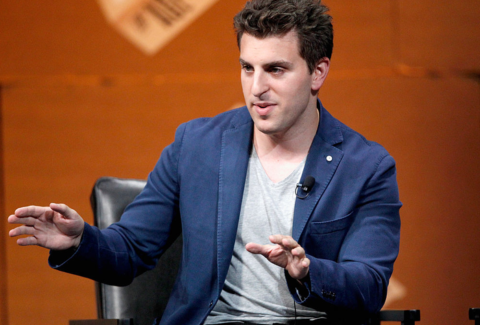ML speaks with ML on SB
Welcome to the thirty-sixth edition of ‘3-2-1 by Story Rules‘. (And I’ll explain the cryptic title in the last reco).
A newsletter recommending good examples of storytelling across:
- 3 tweets
- 2 articles, and
- 1 long-form content piece
Let’s dive in.
🐦 3 Tweets of the week

Brilliant visual. So surprising to see that Australia was settled by humans much before Western Europe and UK.

This is my idea of a dinner gathering with friends.

This rings so true. Especially on Sunday evenings!
📄 2 Articles of the week
a. ‘Job of a scholar is not to become a politician’: Ramachandra Guha
Ok, call this my Ram Guha hangover, but I’m still in the grasp of his magisterial brilliance from reading ‘Gandhi: The Years that Changed the World’.
In this interview, Guha talks about a new set of biographies that he’s edited on remarkable Indian personalities like Emperor Ashoka, Tilak, JP Narayan and Kasturba Gandhi.
In this extract (emphasis mine), he lays out the challenge of balancing good research with clear writing:
The majority of scientific disciplines are those in which the sophistication of one’s original research cannot be communicated in everyday language. A physicist, cosmologist, geneticist or economist would have to seriously dumb down their work to tell you and me about it.
On the other hand, history and anthropology are two branches of scholarship in which the depth and detail of your empirical research can be communicated in everyday language. I’ve always argued that history is a branch of both literature and social science. In the hands of some practitioners, it is only literature – it has a flowing narrative, but political economy and social structure suffer. With others, it’s more social science – the analysis is strong, but the prose is pedestrian.
There are very great historians who transcend this, and make readers think about human conflicts and the rise and fall of institutions while writing elegantly too. Linda Colley, Simon Schama, Marc Bloch are or were great examples. So is the anthropologist, James Scott.
I would definitely add Ramachandra Guha to that list!
b. ‘Managing Yourself: Zoom In, Zoom Out’ by Rosabeth Moss Kanter
This is an old HBR article – and was suggested to me as a good read by a participant from one of my sessions.
It talks about a crucial balance one needs to maintain in storytelling – the ability either zoom in or zoom out, depending on the audience, the data, and the context.
The lens through which leaders view the world can help or hinder their ability to make good strategic decisions, especially during crises. Zoom in, and get a close look at select details—perhaps too close to make sense of them. Zoom out, and see the big picture—but perhaps miss some subtleties and nuances.
Zoom buttons on digital devices let us examine images from many viewpoints. They also provide an apt metaphor for modes of strategic thinking. Some people prefer to see things up close, others from afar. Both perspectives—worm’s-eye and bird’s-eye—have virtues and pathologies. But they should be vantage points, not fixed positions. Leaders need multiple perspectives to get a complete picture. Effective leaders zoom in and zoom out.
A useful tool in the article is a set of questions that we can ask ourselves to find if we are veering too much to one side of the balance.
These questions are for checking if you are too lost in the details:

While these ones are for checking if you have your head in the clouds, far away from ground reality!

🎧 1 long-form listen of the week
a. Judging Sam: Michael Lewis Talks Money with Matt Levine
Sorry for the cryptic email title – but c’mon, we are talking about crypto here!
And two of my favourite storytellers are discussing it together: Michael Lewis and Matt Levine.
The topic of discussion – the much publicised trial of Sam Bankman Fried, the once crypto-poster-boy, who’s now being tried for multiple counts of fraud (worth about $8B!).
It’s a relatively short conversation, but it’s always insightful listening to these two talk.
Give it a listen over the weekend to get a quick idea of what really was so wrong about SBF’s actions.
That’s all from this week’s edition.
Photo by Kenny Eliason on Unsplash







